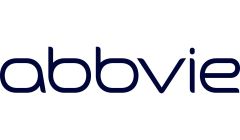AbbVie to present 30 abstracts demonstrating its leadership in neuroscience, including continued migraine treatment research across the spectrum of the disease, commitment to patients with advanced Parkinson's disease, and new studies in spasticity and cervical dystonia

AbbVie announced that data from its neuroscience portfolio will be presented at the 2022 American Academy of Neurology (AAN) Annual Meeting, to be held in Seattle from April 2-7, and virtually April 24-26.
The data, which include an updated analysis of AbbVie's newest migraine medicine atogepant (QULIPTA) along with other results from across its migraine portfolio, underscore the company's dedication to developing and delivering treatments that will make a meaningful difference to people living with migraine. Additional study results focus on data on a new treatment modality for advanced Parkinson's disease as well as new research on carbidopa/levodopa enteral suspension (DUOPA). New data on onabotulinumtoxinA (BOTOX) for the treatment of spasticity and cervical dystonia will also be presented.
"AbbVie's strong presence at AAN reaffirms our unwavering commitment to preserving personhood for people affected by neurological disorders," said Michael Gold, M.D., Therapeutic Area Head, Neuroscience Development, AbbVie. "We're particularly excited about developments and advances across the full spectrum of migraine that demonstrate our innovation and commitment to improving the lives of people with migraine."
Investigators will present data from multiple studies on migraine, including real-world patient-reported outcomes on the effectiveness of ubrogepant (UBRELVY) in those also taking a calcitonin gene-related peptide (CGRP) monoclonal antibody (mAb); a post-hoc analysis that reports the significant magnitude of monthly migraine day reduction in responders to atogepant; and real-world data showing persistence and costs in patients treated with onabotulinumtoxinA or a CGRP mAb.
Researchers will also present six-month interim results from a Phase 3 study on the safety and efficacy of foscarbidopa/foslevodopa (ABBV-951), a levodopa/carbidopa pro-drug administered as a 24-hour continuous, subcutaneous infusion being studied for the treatment of people with advanced Parkinson's disease who are not well controlled on oral medications.

Subscribe To Our Newsletter & Stay Updated